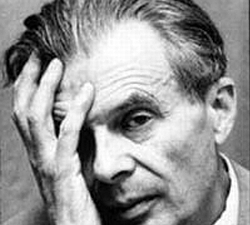Fiction
The North Wind and the Sun by Æsop
620–560 B.C.E. — The North Wind and the Sun make a bet with one another as to which is stronger. The moral is that persuasion is better than force.
We by Yevgeny Zamyatin
1921 —
Brave New World by Aldous Huxley
1932 —
1938 — This novella, centred around the brave proto-individualist Equality 7-2521, is a great tale of future dystopia. Our protagonist finds himself in a primitivist society so strangled by collectivism that not even the word “I” is permitted. This is the most favourite piece of literature written by Ms. Rand that I have read to this date.
1984 by George Orwell
8 June 1949 — The quintessential dystopian tale, 1984 is about a man named Winston Smith living under a totalitarian government guided by the ideology of English Socialism, or Ingsoc, which is both a political and a metaphysical philosophy. Everything is centrally planned, and humans, in this horrid society, are considered worthless outside of “party needs.” Individualism (referred to in the novel as “ownlife”) is squashed through brainwashing and the elimination of privacy, and the state even attempts to eliminate independent thought itself through control of the language. War is peace, freedom is slavery, and ignorance is strength.
Fahrenheit 451 by Ray Bradbury
1953 — This story, a veritable love-letter to the library and the book, tells of a future world where intellectualism is discouraged and virtually all books are banned. Firemen, no longer needed to extinguish burning houses, now spend their time burning books. One fireman, however, starts to question his role in society…
To Kill a Mocking Bird by Harper Lee
11 July 1960 —
Harrison Bergeron by Kurt Vonnegut
October 1961 — This Vonnegut classic takes place in 2081, a year when “everybody [i]s finally equal.” The U.S., at this point, has adopted a Handicapper General whose job it is to ensure that nobody is ever more abled than anyone else. Our hero, Harrison Bergeron, is an enemy of the state precisely because he refuses to be regulated.
Cat’s Cradle by Kurt Vonnegut
1963 — This end-of-the-world mini-epic, told by a cynical author named John, serves as an allegory to the potential destruction of humanity resulting from irrationality and ethical nihilism. Interestingly, Vonnegut attacks both religion and science in this novel, each for lacking what the other has. Thus, he attacks religion as nothing more than a pack of lies (albeit potentially useful lies) and a tool for shunning thinking, while he attacks science—particularly the sort of science that created the atomic bomb—for whatever amorality it may engender. It seems that Vonnegut held that both science and religion, although neither inherently bad, can be unwieldy tools. More so than anything else, this book is an attack on atomic weapons and on power—for these things, Vonnegut presents no positive side at all.
“Repent, Harlequin!” Said the Ticktockman by Harlan Ellison
December 1965 — In an age where punctuality is everything; where the central planners literally take seconds, minutes, or more off of the lives of those who are tardy; one masked anarchist finds humourous methods of throwing wrenches into the clockwork of the Master Timekeeper.
The Moon is a Harsh Mistress by Robert A. Heinlein
1966 — It’s the year 2075, and trouble is brewing on the Luna. The inhabitants of Luna—who style themselves “loonies”—are tired of being under the thumb of the Warden and Authority. Luckily, a small, revolutionary cadre forms under the banner “Free Luna!”
Alongside Night by J. Neil Schulman
16 October 1979 —
The Handmaid’s Tale by Margaret Atwood
1985 —
V for Vendetta by Alan Moore
March 1982–May 1989 — This fictional account of an anarchist superhero constitutes my favourite graphic novel. Released as ten separate issues in the ’80s, it takes place in England in the late ’90s after England has descended into fascism. Our hero, known only as V, engages in a successful revolution against the state. In 2006, the novel was adopted into a film of a similar title.
They’re Made Out of Meat by Terry Bisson
1990 — This brilliant science fiction short story, written in the form of a dialogue between two non-human entities, showcases the inherent irrationality of prejudice.
The Choice: A Fable of Free Trade and Protection (2nd ed.) by Russell Roberts
1 May 2000 —
Aldous Huxley (1894–1963)
George Orwell (1903–1950)
Ayn Rand (1905–1982)
Kurt Vonnegut, Jr. (1922–2007)



